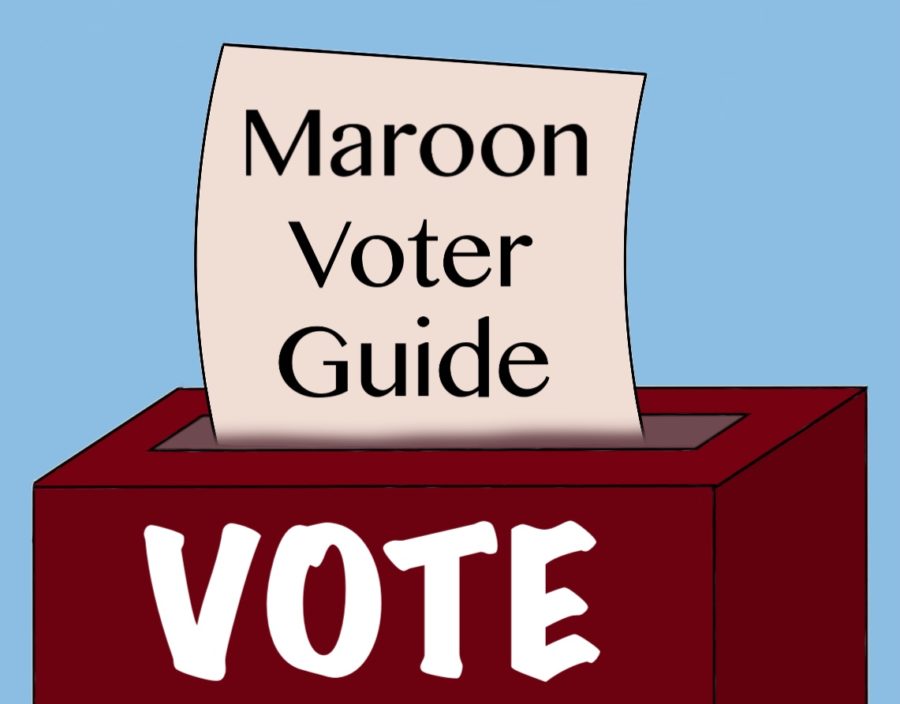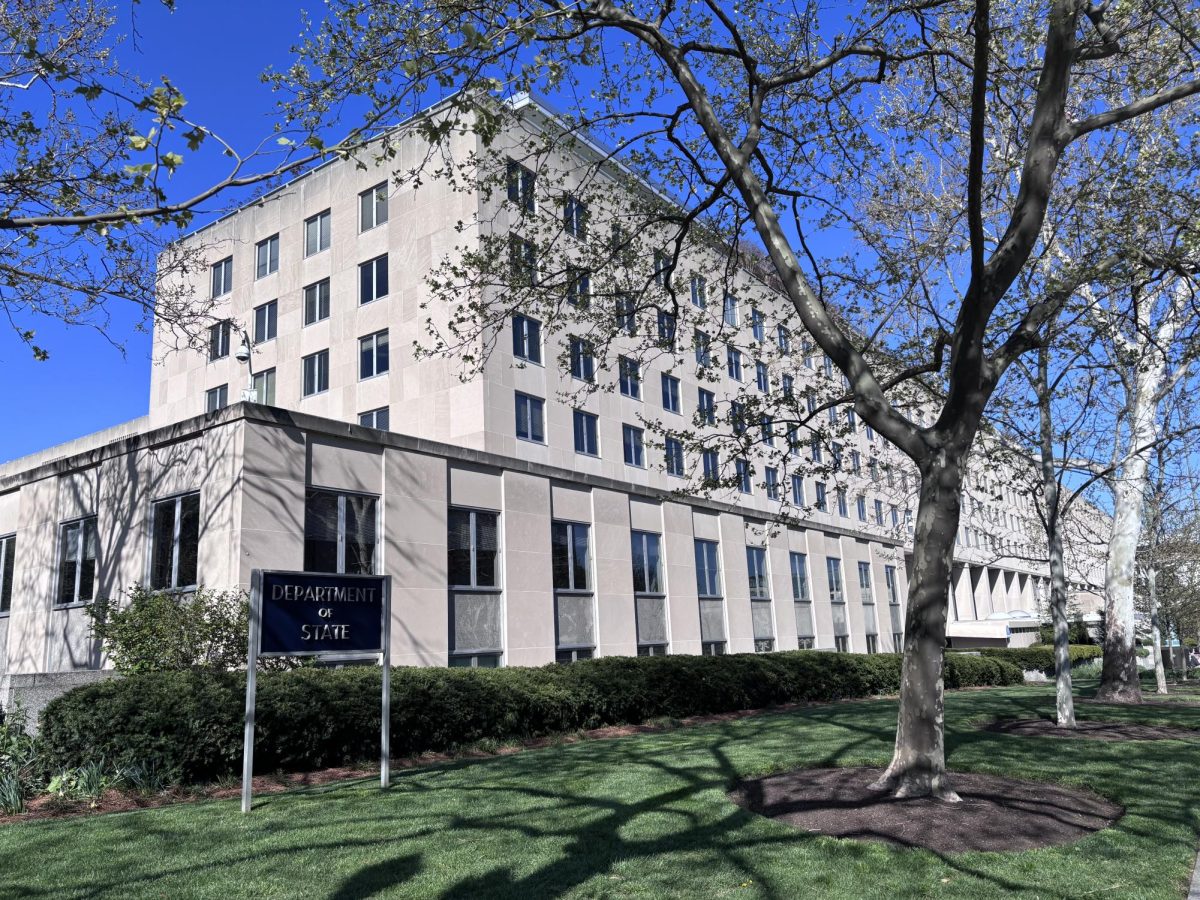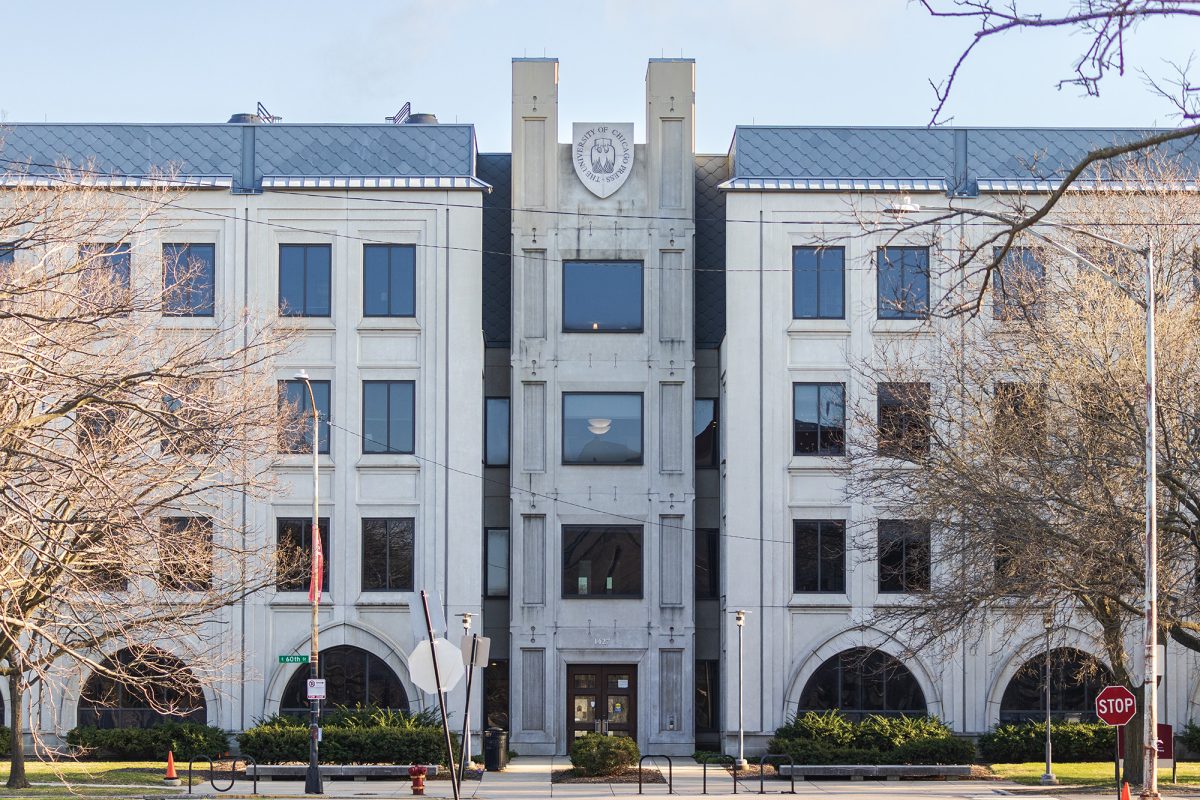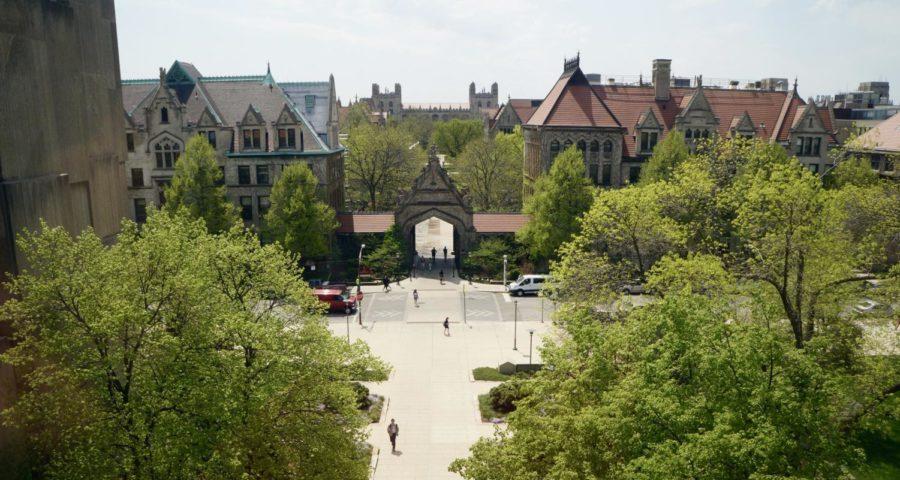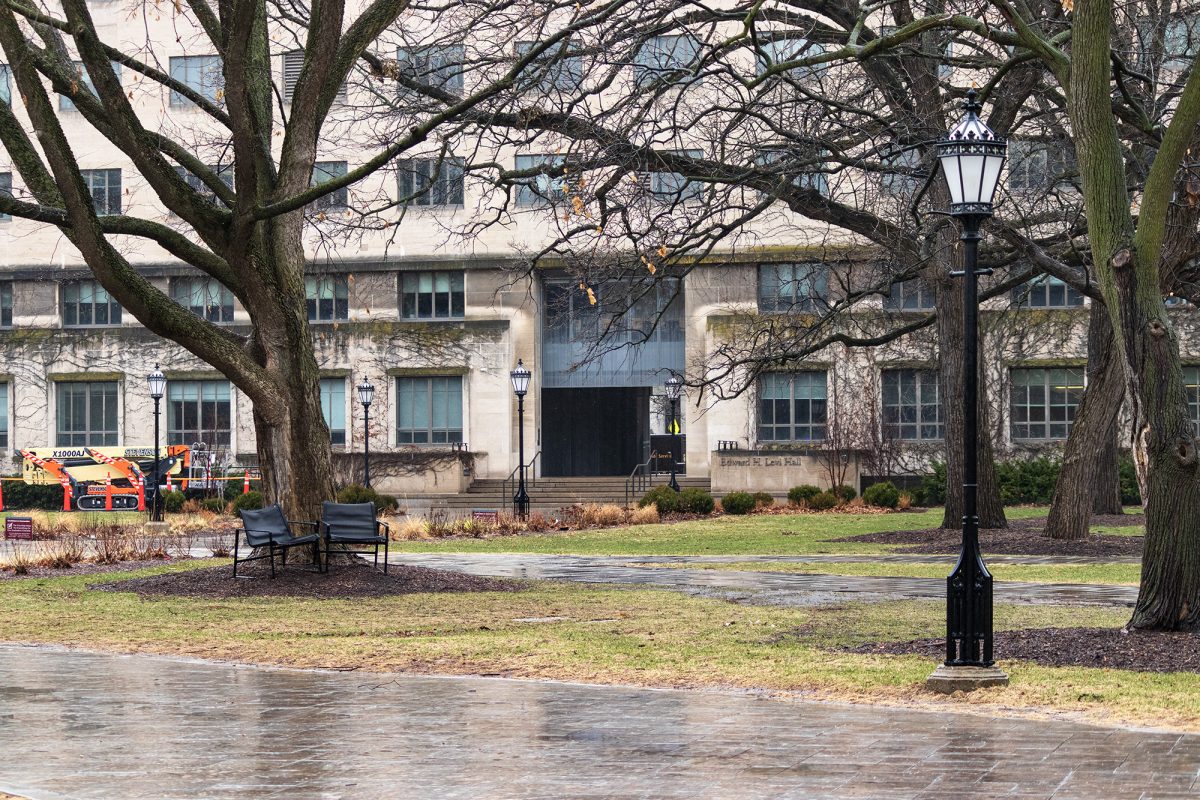Leading up to the March 17 Primary, The Maroon has put together a series of explainers and candidate guides to help Hyde Park voters make informed choices. The rest of the guides can be accessed here.
The Democratic primary election for the U.S. House of Representatives seat in Illinois’s first congressional district will take place on March 17. The incumbent, Bobby Rush, 73, has held the position since 1993, and previously served as alderman of Chicago’s Second Ward.
His three challengers are Sarah Gad, 32, a third-year student at the UChicago Law School and the founder of the nonprofit organization Addiction 2 Action, Robert Emmons Jr., 27, a graduate of the University of Illinois at Urbana-Champaign and a former community leader for the Obama Foundation, and Ameena Matthews, 32, a community activist who was featured in the 2009 documentary, The Interrupters.
The first congressional district includes Hyde Park and much of Chicago’s South Side, as well as towns like Riverdale, Manhattan, and Joliet. Overall, the district covers parts of Cook County, which includes Chicago, as well as the adjacent Will County.
The district is primarily comprised of Black voters (50.1 percent), with white voters comprising another 43.0 percent of the population. The district has been represented by a Black man since Oscar Stanton De Priest assumed the office in 1929, and by a Democrat since Arthur Mitchell (1935).
As a member of the House, the first district Representative would have a number of legislative responsibilities, including introducing and voting on legislation, as well as any articles of impeachment. Specifically, the representative of Illinois’s first district would look to address issues concerning the district, including residential displacement and gun violence, the latter of which Rush addressed at a House Health Subcommittee hearing in 2019.
Bobby Rush
Bobby Rush, 73, has served as the representative for Illinois’s first congressional district since 1993. During his tenure, Rush served primarily on the House Committee on Energy and Commerce and is currently the chair of the Subcommittee on Energy and Power. In 2017, Rush introduced H.R. 338, a bill that intended to facilitate employment in the energy sector by “awarding grants…to prioritize training and education for energy and manufacturing jobs.” However, that bill never passed the Senate.
Rush has also done work regarding race relations and gun violence. In 2012, following the killing of Florida teenager Trayvon Martin, Rush addressed the House while symbolically wearing a gray hoodie, which is what Martin wore when he was shot, saying, “Too often, this violent act that resulted in the murder of Trayvon Martin is repeated in the streets of our nation." In 2019, Rush led a House Health Subcommittee hearing regarding gun violence in the United States, referring to it as “a national epidemic.”
Prior to being elected to Congress, Rush cofounded the Illinois Chapter of the Black Panther Party in 1968 and served as alderman for Chicago’s Second Ward between 1983 and 1993. During his time as alderman, Rush pushed for environmental reforms, including “toxic waste legislation and heating cost disclosure laws for incoming tenants.” While in Congress, Rush has continued to promote environmentally-focused policies, such as by introducing H.R. 5545 (“NO EXHAUST”) in January, which would allocate “more than $6 billion per year…over the next ten years for states to implement electric vehicle networks.”
During his tenure in the House, Rush missed votes at an above-average rate, which challenger Sarah Gad criticized during a January forum. Between 2007 and 2015, Rush missed 22.4 percent of votes, the most of any House member during that period. However, a ProPublica study found that a majority of absences for which an explanation was provided were due to a “medical matter.” In 2008, Rush received treatment for salivary gland cancer, while, in 2013 and 2014, his wife, Carolyn, underwent several heart procedures, which caused him to miss time.
Sarah Gad
Gad, 32, is a third-year student at the UChicago Law School. Prior to coming to UChicago, Gad was a medical student at the University of Pittsburgh, but was forced to drop out after suffering severe injuries in a car accident, which led to an opioid addiction and a stint of incarceration at Cook County Jail for drug-related offenses.
Since then, Gad has focused heavily on prison reform and addiction treatment. In 2015, Gad took a research assistantship under civil rights attorney Kathleen Zellner, and in 2018, while at UChicago, Gad founded Addiction 2 Action, a nonprofit organization focused on treating opioid addiction, particularly in jails and prisons.
Gad has also spoken favorably about other types of healthcare reform. At a January candidate forum, Gad said that she supports “moving towards a single-payer health care system,” but also mentioned a need to prioritize other measures first, such as expanding primary care.
At the same forum, Gad addressed race relations in the United States and their connection to law enforcement. “We have a system of law enforcement that unfairly targets people of color [and] stamps them with [criminal] records,” Gad said. She also expressed support for reparations for descendants of slaves, particularly on the South Side.
Gad also supports education reform, including for incarcerated persons. The 1994 Violent Crime Control and Law Enforcement Act prevented all currently incarcerated people from obtaining Pell Grants for higher education, but Gad supports restoring the accessibility of these grants. She also supports tuition-free public universities and trade schools, as well as student debt cancellation.
Robert Emmons, Jr.
Emmons, 27, is a community activist and graduate of the University of Illinois at Urbana-Champaign (UIUC). After his graduation, Emmons worked for OneGoal, a nonprofit organization that aims to increase the opportunity for underprivileged youth to obtain higher education. He has also served as a community leader at the Obama Foundation, helping other activists design projects and initiatives.
At a January candidate forum, Emmons characterized gun violence prevention as his primary concern, and supports several measures to address the issue. Emmons supports repealing the 1996 Dickey Amendment, which indirectly restricts the Centers for Disease Control and Prevention (CDC) from doing research related to gun violence. Emmons also supports passing universal background checks and implementing “extreme risk protection order laws,” which allow families and law enforcement to temporarily restrict “access to guns for individuals at an elevated risk of harming themselves or others.”
The issue of gun violence is personal to Emmons. According to Emmons, while at UIUC, he lost his “best friend and roommate to gun violence."
Emmons also supports various forms of environmental reform. He supports passing a Green New Deal, which would focus on achieving “net-zero greenhouse gas emissions” nationwide. Emmons has also mentioned “the possibility of wind farms in the southern end” of the congressional district, as well as the need to clear lead from Chicago’s drinking water.
He also supports various types of criminal justice reform, including restoring voting rights to incarcerated persons and abolishing capital punishment.
Emmons has received endorsements from national and local Sunrise Movements, youth-led political movements focused on environmentalism and climate change, as well as former Democratic presidential candidate Marianne Williamson.
Ameena Matthews
Matthews, 32, is a community activist focused primarily on violence prevention. She was raised by her single grandmother in Chicago.
Matthews began her career as a political activist in 2006 when she joined Cure Violence (previously known as CeaseFire), an organization founded by epidemiologist Gary Slutkin that looks to reduce rates of violent crime through “disease control and behavior change methods." Later, Matthews founded Pause 4 Peace, another nonprofit anti-violence organization that specifically looks to work with public school students.
In 2009, Matthews was featured in The Interrupters, a documentary about herself, CeaseFire, and other violence prevention activists in Chicago. The Interrupters won Best Documentary Feature at the 2012 Film Independent Spirit Awards, and premiered at the 2011 Sundance Film Festival.
Currently, Matthews works for the Youth Safety and Violence Prevention program within the YMCA, which is partnered with Pause 4 Peace and focuses on developing life skills.
Politically, Matthews said in an interview with the Chicago Sun-Times that she supports the Affordable Care Act and Medicare for All, saying that “the lack of access to the necessary prescriptions can affect quality of life of individuals on a daily basis.” She also mentioned that “Congress should take actions to reduce gun violence,” including universal background checks and psychological evaluations.



